Discover financial empowerment resources
Discover financial empowerment resources
There are many different actions that can be taken to improve financial wellbeing. The Financial Wellbeing Framework offers 17 entry points to action to inform government, organizations, policymakers, decision-makers, practitioners, and researchers in their efforts to address financial...

This policy brief argues that employment is not a viable path out of poverty unless policy interventions first address the barriers that prevent work and create a labour market that offers decent jobs. A successful poverty reduction strategy must also speak to the needs of those who will never work...
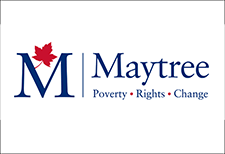
In recognition of November 2025 Financial Abuse Awareness month, the Canadian Center for Women's Empowerment (CCFWE) hosted Empowering Survivors Through Digital Safety: Preventing Technology-Facilitated Economic Abuse within Financial Systems. This webinar explores how survivor-informed policy,...
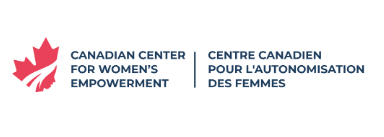
Braiding Mind, Body, and Spirit: A Financial Wellness Bundle is a resource designed to help Indigenous individuals, families, and communities make confident money choices with settlement funds. This 60-minute webinar brought together the co-creators of the resource to highlight the need for...
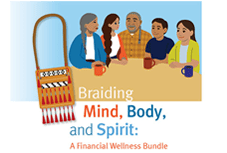
Canadians with low incomes lack access to the financial help they need to rebuild their financial health and resilience. Watch the webinar from September 17, 2025 as we present findings from our recent report: Closing the Divide: Solutions for Canada’s Financial Help Gap. Prosper Canada’s...
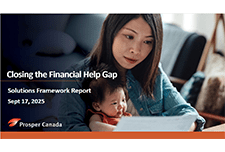
A culturally grounded resource to support Indigenous financial wellness. Braiding Mind, Body, and Spirit is a financial wellness bundle created by and for Indigenous individuals and communities. Developed with Indigenous teachings, community voices, and practical tools to support individuals,...
The GetYourBenefits! Project began as an attempt to convince physicians that it is important to diagnose and treat poverty. This paper describes how information on accessing benefits has been communicated to physicians, health care providers, and those who work in public...

Your tax notice of assessment tells you many important things. Learn more about what’s in your notice of assessment and what to do if you need to make a change on your tax return or if you disagree with your assessment. Available in...

See the impact of markets ups, downs, and more based on historical data. Available in...

Dive in to explore how the trends and insights from the country’s most comprehensive research on non-profit workers’ health and wellbeing can guide your leaders, team and board. The 2025 Changemaker Wellbeing Index is a free resource filled with reliable data on the factors affecting the...
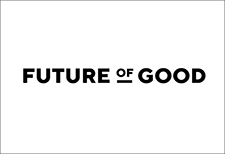
Ontario faces three crises in housing – attainability, affordability and homelessness. These crises were and are exacerbated by the ongoing COVID-19 pandemic. The economic chaos created as our American allies become difficult neighbours threatens to pile on top of the COVID-19 damage before our...
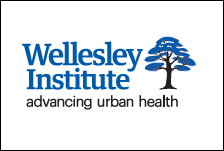
Receiving a lump sum of money can be overwhelming to some people. Careful planning can help you make the most of your money. Here are some ways to financially prepare for your compensation in the First Nations Child and Family Services and Jordan’s Principle Settlement. Watch the...

The affordable housing crisis in Canada creates many challenges for millions of people trying to find a place to live that they can afford. For many marginalized renters, discrimination presents additional barriers making it even harder for them to find a home. To better understand these...

From 2019 to 2022, among Indigenous people aged 18 years and older, 54.3% of Inuit reported having a regular healthcare provider, along with 81.4% of First Nations people living off reserve and 84.5% of Métis. This is compared with 85.7% of the non-Indigenous adult population. Released...

This article analyses results from the Canadian Housing Survey, 2022 , using new variables on homelessness and factors contributing to regaining and maintaining housing. The paper provides a descriptive overview of different types of homelessness experiences in Canada, highlighting select...

The policy brief, Provincial spending on housing and homelessness in Ontario, presents a stark reality: homelessness in Ontario is worsening, with chronic homelessness nearly doubling in just two years. The policy brief finds that: Homelessness is worsening: Over 81,000 Ontarians experienced...

The COVID-19 pandemic and post-pandemic recovery were “feast and famine” for the budgets of low-income families and individuals across Canada. Because of the income support programs put in place to help Canadians affected by workplace shutdowns, the poverty rate fell to 6.4% in 2020, down by...

In 2024, close to half of First Nations people living off reserve (45%) and Métis (44%), and more than half of Inuit (54%) (all aged 15 years and older) reported that it was "difficult" or "very difficult" in the 12 months preceding the survey to meet their financial needs in terms of...

The Embedded Financial Coaching project builds on evidence that embedding financial coaching into employment services leads to stronger employment and financial well-being outcomes. This report provides insights on the project components including delivering financial coaching services, developing...
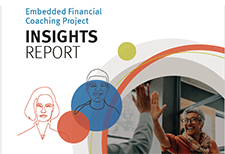
A poverty reduction strategy lays a foundation to build a community of best practices; it identifies gaps and leverages local knowledge. This case study unpacks the conditions that have led to the success of Niagara Region’s Poverty Reduction Strategy – specifically around its community...

Money and Youth starts with an exploration of one’s values and covers how to make good decisions – and be aware of those who will try to influence decisions and how they can go about doing so. The book then proceeds through a learning framework looking at the challenges and opportunities of...
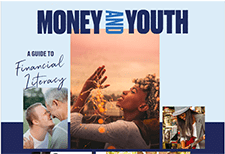
This infographic provides a helpful visual summary of tax benefits that can add to income or reduce the taxes people in Canada pay when they file their tax return. The information is especially useful for people in Canada who: Are working or living on a low income; Live with a...

The findings in this report highlight the important role of Old Age Security in reducing poverty, with payments under this program making up a large share of annual income for older adults in Toronto’s lowest income deciles. However, too many eligible older adults in Toronto are not receiving OAS...
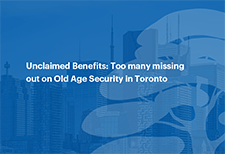
Financial Services Regulatory Authority is responsible for registering all federally incorporated loan and trust companies that do business in Ontario. They enforce the Loan and Trust Corporations Act that govern loan and trust companies. Use this website to learn more about: How to find a...

Under the Mortgage Brokerages, Lenders and Administrators Act, 2006 (MBLAA) all individuals and businesses in Ontario who carry out regulated mortgage brokering activities must be licensed with the Financial Services Regulatory Authority unless otherwise exempted by the Act. As regulator, their...

